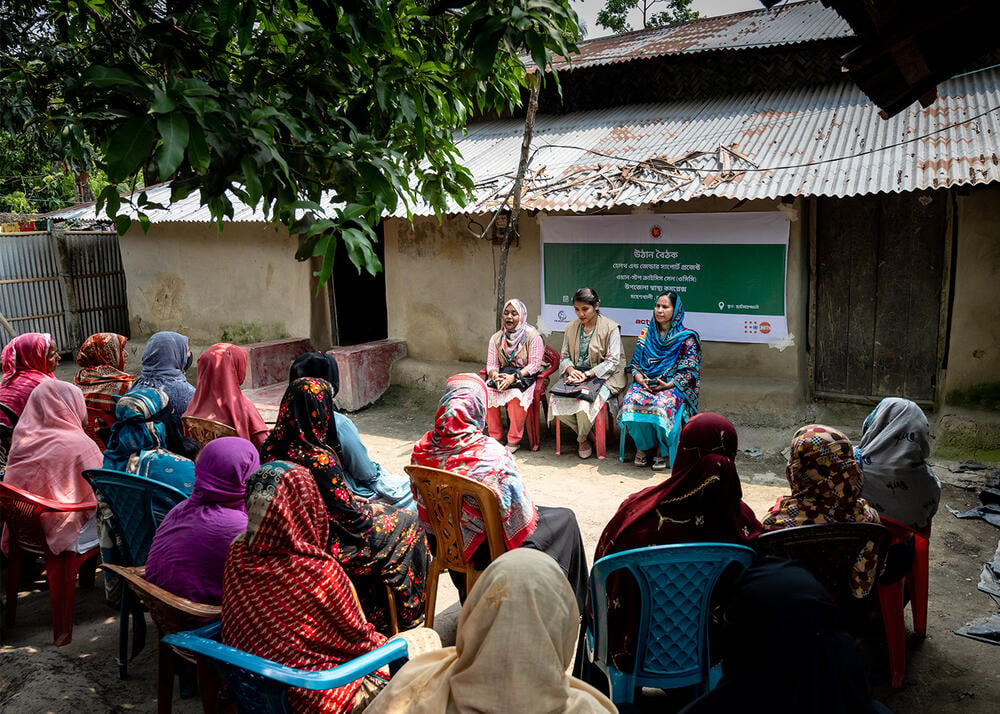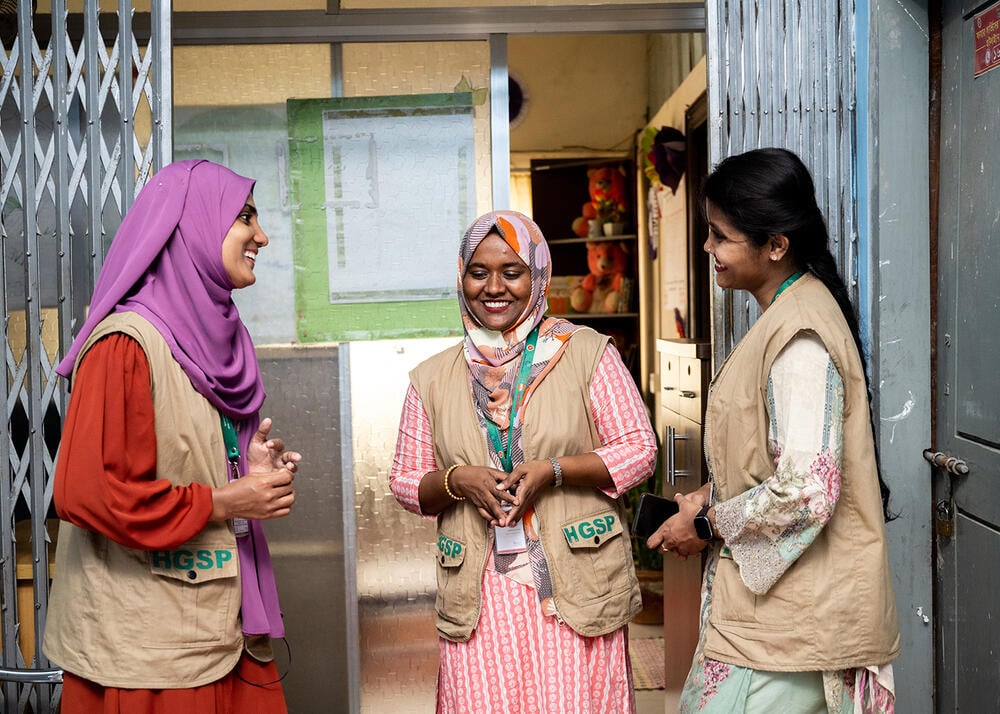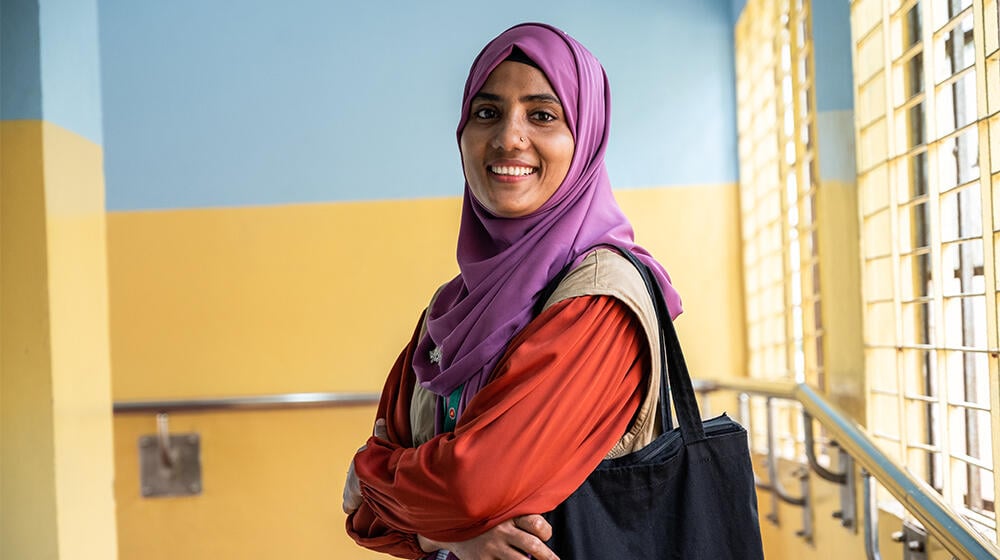Tasnim is a caseworker at the One Stop Crisis Cell housed within the Moheshkhali Upazila Health Complex. At 26, she is one of the first faces at the facility that survivors of gender-based violence (GBV) encounter – a familiar one, born and raised in this very community.
Three years ago, what brought her to this profession is equal parts simple and profound. “It’s a calling,” she asserted.
“I have always felt a pull to help the women and girls in need. To offer support during their most difficult times – that is my greatest possible reward, both as a fellow woman and a GBV caseworker.”
Tasnim specialises in delivering trauma-informed and gender responsive psychosocial support tailored for GBV survivors. “When an incident like GBV occurs in a woman’s life, it causes profound distress, making regular life difficult to navigate,” she explained. “Providing psychosocial support becomes crucial at this point. It can be the lifeline that prevents long-term mental health problems from settling in.”
As a local resident, Tasnim offers valuable insights into the impact of the One Stop Crisis Cell (OCC). Prior to 2021, she recalls, “information about available services for survivors was scarce” in Moheshkhali – a subdistrict of Cox’s Bazar. However, the project’s innovative approach of integrating prevention into response efforts and vice versa, has significantly enhanced the community knowledge about GBV services available at their localities and beyond.
Caseworkers and volunteers now conduct door-to-door outreach, while partner organisations conduct community mobilisation initiatives such as courtyard sessions, Polli Samaj meetings, tea stall discussions, and even theatre shows. These combined efforts ensure that crucial information about GBV services reaches the furthest corners of the community.

“Before the OCC, vital services like clinical management of rape, forensic exams, and DNA testing were only available at the district hospital. This excluded many survivors: those without support systems, those with disabilities, those struggling financially, and those suffering from debilitating physical and psychological effects,” Tasnim explained.
“Now, with the OCC right here, these services are easily accessible. It’s a one-stop platform, connecting the survivors to medical care, legal aid, shelter support, skill development opportunities, and even job training – all from under one roof.”
Recognizing the importance of her own well-being, Tasnim values the opportunities for year-round capacity development programmes and the culture of prioritising self-care at the OCC. She argues, “If we are not mentally fit, how can we support others?”

Tasnim insisted, “My greatest reward is when a survivor tells me that I have been able to help. That is the only type of success I look for.”
“GBV is such a taboo subject that many survivors end up feeling completely isolated and alone. Usually, they don’t get any support from their families to access services. Neither are their stories always believed,” she explained.
“So, whenever I can help a survivor feel even a little less alone on her journey, that alone means everything to me.”
With World Bank’s funding, the Ministry of Health and Family Welfare launched the Health and Gender Support Project in Cox's Bazar in 2021. This project, implemented with UNFPA's technical support, is strengthening government services for GBV survivors across all healthcare levels, including in the Rohingya camps.


